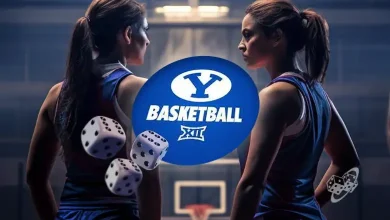Bills introduced to legalize sports betting in 3 more states of the USA

The US is considering legalizing sports betting in three more regions. The justifications in place claim that opening the door to legalized sports betting will result in increased tax revenue for individual states; thus, the reasons sound reasonable to a large extent. Following the legalization of sports betting, 36 states are reaping the benefits. There is, therefore, no question as to why Texas, Georgia, and Oklahoma should not be commended for their efforts.
Senate Bill 715 relates to Texas. It will soon be presented with a proposal to not just legalize sports betting but also impose a 10% tax on the revenue that platforms generate. The core focus will be on mobile sports betting. As for the tax collection at 10%, it only furthers the hint from the 2021 preposition.
While the number in terms of percentage appears to be standing at only “10,” the effect that it can likely create on the state comes to approximately $250 million per year. This is true, as per the statement issued by former Governor Rick Perry.
The proposal has some supporters in the House. At the time of the writing of this article, Christian Manuel came forward in support of the proposal, arguing that legalizing the industry can generate new sources of income and employment. Implementing a legal aspect of the industry is vital in light of the American Gaming Association’s declaration that 50 million Americans will wager $16 billion on the Super Bowl, but none of that money will come to the state.
The question of why not simply keep the Texas dollars in the state rather than sending them elsewhere arises.
An invoice in Oklahoma, HB1027, authored by Rep. Kent Luttrell, proposes to legalize sports betting not just over the internet but also for the brick-and-mortar segment. Similar to Texas, there is support in Oklahoma from Gov. Kevin Stitt, who has clarified that the support is subjected to the honesty and clarity with which the sector commits to functioning in the state.
Clearly, income potential should continue to be a top priority.
House Bill 380 by Rep. Marcus Wiedower has received support from the Metro Atlanta Chamber in Georgia. However, they have further stated that the income generated after legalizing the segment will be directed to education under the Georgia Lottery. Marshall Guest has echoed the same.
Georgia plans to introduce two types of licenses: Type 1 and Type 2. Type 1 licenses would be specifically for platforms operating over the internet, while Type 2 licenses will be dedicated to in-person betting service providers. Operators will have to set aside 15% of the adjusted gross income, payable as privilege tax, which would then be directed to fund education in the state.
The bill, if introduced, would open doors to all the best sports betting sites in USA to enter Oklahoma, Texas, and Georgia.
Tax revenues will undoubtedly increase, and some governments’ commitments to support their education policies indicate the social responsibility that may be exercised after legalizing one of the nation’s most lucrative industries.



